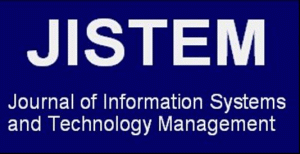The main objective of this study was to compare and contrast the three philosophies of management control models in the process of decision-making, namely reactive, proactive and the coactive. The research methodology was based on literature review and descriptive-exploratory approach and additionally a survey of 20 service organizations were carried out in order to enhance the analysis of the state of the art. To execute the aforementioned, firstly, we highlight the fundamentals of the reactive, proactive and coactive models. Secondly, compared the management behaviors in the three approaches, hitherto highlighting the concepts and their practical application, thus retrieving the management relationships in the organization. By so doing we draw the hypothesis that, middle and top managers who adopt control models that are distant from a more coactive one, generally, spend a greater number of working hours in problems solutions leaving little or no time for planning purposes. Finally, in order to consolidate this study we adopted a qualitative data gathering style of semi-structured instrument for the collection of data whereby a content analysis with the assistance of six categories were drawn. Results revealed that there is a need for a change in management paradigms so that firms are not only compared from the financial perspectives without analysis of management control models which according to this study, directly influence the operational results of the organizations.
management; control; systems; models
